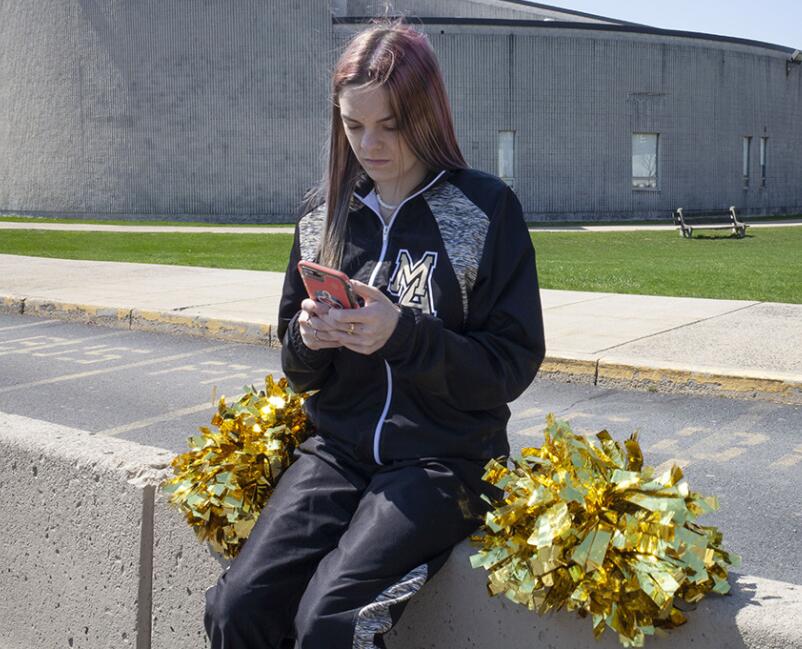US Supreme Court Sides with Student over School in Free Speech Decision
The U.S. Supreme Court ruled Wednesday that a high school violated a student's free speech rights by punishing her for a social media post.
By a vote of 8-1, the nation's highest court ruled in favor of Brandi Levy over Mahanoy Area School District in the state of Pennsylvania.
In 2017, Levy was upset that she did not make the top cheerleading team at the area's high school. She was selected for the second-best team.
Levy, who was 14 at the time, then posted on Snapchat an image of herself raising a middle finger, an offensive sign, and using bad language to criticize the school and the team. The action took place outside of school hours and away from the school grounds.
The Snapchat messages could only be seen for a short time. But the post was captured and shared with parents and school officials. Some students approached school officials about the post and were "visibly upset."

School officials punished Levy by banning her from cheerleading for one year. They decided that her offensive action was related to cheerleading, a school activity, and disruptive.
Levy and her parents took their case against the school to court. A lower court judge ordered the school to let her back onto the team. But the school appealed the decision to a federal court in Pennsylvania and then the Supreme Court.
The school argued that it was permitted to punish Levy based on a 1969 Supreme Court ruling. The ruling in Tinker v. Des Moines protected students' rights to protest the Vietnam War. But the court also said students could be punished for disruptive speech.
Justice Stephen Breyer wrote the opinion for the majority. Some might think Levy's words were not worthy of the First Amendment protection of free speech rights, Breyer noted. "But sometimes it is necessary to protect the superfluous in order to preserve the necessary," he added.
A lower court had ruled that schools have no authority over a student's speech when it happens away from school grounds. But the Supreme Court's ruling is more limited.
Breyer wrote that the school's interests "remain significant in some off-campus circumstances." He added, however, "When it comes to political or religious speech that occurs outside school or a school program or activity, the school will have a heavy burden to justify intervention."
Levy said she was glad the Supreme Court agreed that her school went too far.
Now, an 18-year-old college student, she told Reuters, "I never could have imagined that one simple snap would turn into a Supreme Court case, but I'm proud that my family and I advocated for the rights of millions of public school students."
I'm Dan Friedell.













